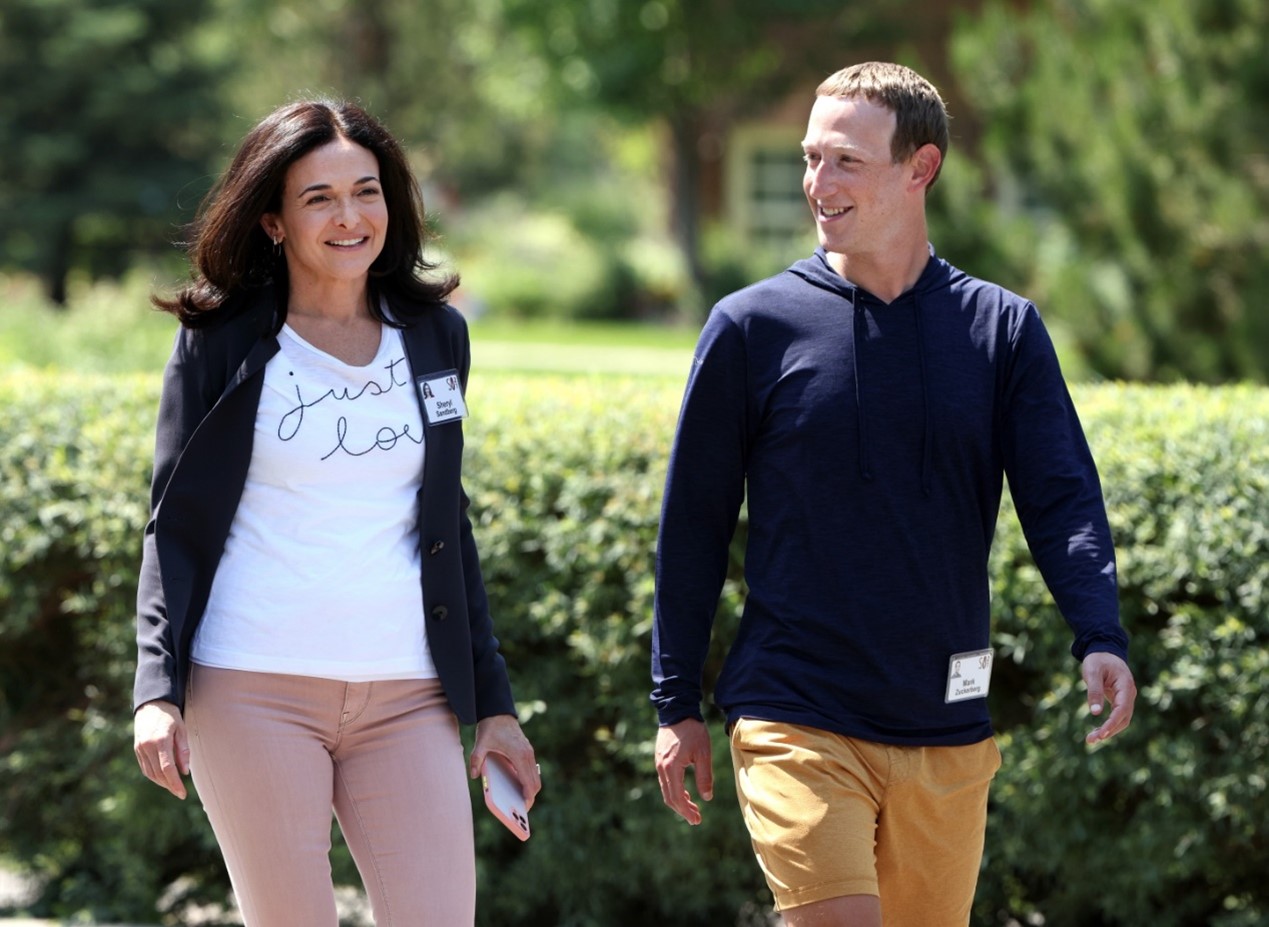
尼爾·豪威有好幾個(gè)身份,他既是幾本書的作者,也是華盛頓地區(qū)的一名咨詢顧問,還是Hedgeye風(fēng)險(xiǎn)管理公司的一名資產(chǎn)管理高管。
他也是在美國最早從事代際研究的人,“千禧一代”這個(gè)詞就是他在1991年創(chuàng)造的。他在1997年威廉·斯特勞斯合著的《第四次轉(zhuǎn)折》一書中大膽地指出,每一代人在歷史的“長周期”中都有屬于自己的角色。他預(yù)測美國在2005年到2020年將陷入危機(jī)時(shí)代。有媒體曾嘲笑他的研究是“偽科學(xué)”,但轉(zhuǎn)頭便將“千禧一代”一詞用得不亦樂乎。
這本書不僅是史蒂夫·班農(nóng)的最愛,也是知名投資策略師基里爾·索科洛夫等著名商界大佬的最愛。《紐約時(shí)報(bào)》最近在《風(fēng)格》欄目中指出,豪威的理論已經(jīng)日益滲透進(jìn)流行文化當(dāng)中。《紐約時(shí)報(bào)》的《圖書》欄目甚至邀請了弗朗西斯·福山這樣的權(quán)威人士來評論這一理論。福山是一位偉大的政治學(xué)家,曾在柏林墻倒塌和蘇聯(lián)解體時(shí)預(yù)言了“歷史的終結(jié)”。
豪威最近對《財(cái)富》表示,大約十年前,他意識(shí)到自己有必要為《第四次轉(zhuǎn)折》寫一部續(xù)作。因?yàn)樗J(rèn)為,美國2005年前后將發(fā)生一次“催化劑事件”,進(jìn)而引發(fā)“危機(jī)時(shí)代”的到來,最終將導(dǎo)致“大貶值”,屆時(shí)“這片土地將迎來真正的苦難,爆發(fā)嚴(yán)重的危機(jī),甚至有可能引發(fā)階級矛盾、種族主義、民族主義和帝國主義方面的問題。”這個(gè)時(shí)代將在2020年代達(dá)到頂點(diǎn),期間“專制、極端、強(qiáng)硬”的年長領(lǐng)導(dǎo)人(就像特朗普這種)將與千禧一代和Z世代形成尖銳對立,而X世代的中年人則被夾在他們中間。他表示:“在全球金融危機(jī)爆發(fā)后不久,我就認(rèn)為這是絕對會(huì)發(fā)生的事。它爆發(fā)的正是時(shí)候——也就是2007年到2008年,這與我們預(yù)測的非常接近了。”
在一次采訪中,豪威向《財(cái)富》談到了他的新書——即將于7月18日出版的《第四次轉(zhuǎn)折已至》(The Fourth Turning Is Here)。他是這本書的唯一作者,因?yàn)榇饲芭c他合著《第四次轉(zhuǎn)折》的威廉·斯特勞斯已于2007年去世。他談到了他和斯特勞斯25年前提出的理論是如何一步步照進(jìn)現(xiàn)實(shí)的,以及千禧一代和Z世代(他稱之為“祖國人”)是如何讓他感到驚訝的。作為一個(gè)驕傲的X世代,他認(rèn)為他這一代人“仿佛陳年的美酒”,而“極端、專制”的嬰兒潮一代人也不出所料地變得越來越像特朗普。
豪威還解釋了為什么他對美國經(jīng)濟(jì)感到擔(dān)憂,為什么他告別了華盛頓,搬到了西弗吉尼亞的山區(qū),以及為什么他對拜登在學(xué)生貸款問題上的做法持有疑慮。不過他表示,當(dāng)“第四次轉(zhuǎn)折”完成時(shí),這一切將都不再重要。
千禧一代的標(biāo)志性人物:泰勒·斯威夫特
豪威和斯特勞斯的“第四次轉(zhuǎn)折”理論將千禧一代稱為“英雄”的一代,他們注定要在一場關(guān)乎國家經(jīng)濟(jì)和政治走向的斗爭中與嬰兒潮一代對抗。不過,這并不意味著他們會(huì)很輕易地取得成功。
站在千禧一代的敘事角度上,豪威發(fā)現(xiàn),千禧一代是充分相信精英主義的一代,為此他們接受了大量教育,參加了許多考試,也背負(fù)了最多的學(xué)生貸款。他們也是在課外補(bǔ)習(xí)上卷到極致的一代。他們放棄了在趴體上飛葉子,但是卻選擇了喝“聰明水”提高成績。他們相互抱團(tuán)取暖,不管是“志愿服務(wù)”的流行,還是“錯(cuò)過恐懼癥”的蔓延,以及他們的社交媒體依賴癥和“數(shù)字監(jiān)視強(qiáng)迫癥”(也就是隨時(shí)隨地在手機(jī)上監(jiān)視對方在干什么),都已經(jīng)成了這一代人獨(dú)有的烙印。
豪威在他的新書中寫道:“努力實(shí)現(xiàn)、努力表現(xiàn)、努力融入、努力管理風(fēng)險(xiǎn)和取悅他人……千禧一代努力同時(shí)搞定所有這些,這將千禧一代推向了一種優(yōu)化的、清單化的甚至是完美主義傾向的生活方式,這往往會(huì)讓他們處在慢性壓力之中。”豪威認(rèn)為,由于經(jīng)濟(jì)現(xiàn)實(shí)與千禧一代的自我實(shí)現(xiàn)不一致,他們對資本主義越來越持懷疑態(tài)度。“很多人認(rèn)為肆無忌憚的市場是吃小孩兒的妖怪。”
他表示,泰勒·斯威夫特就是一個(gè)經(jīng)典的“主流的千禧一代的品牌形象”。當(dāng)被問到她的身上是否能體現(xiàn)出千禧一代的完美主義和焦慮時(shí),豪威只是簡單地說,她是一個(gè)“標(biāo)志性的”人物。

除了有最好的詞曲作者的加持,以及美國音樂界最富有的超級巨星的身份以外,豪威表示,泰勒·斯威夫特的公共形象“一切都是完美安排和上演的產(chǎn)物”。
豪威注意到了她精心安排的現(xiàn)場表演,她在經(jīng)濟(jì)上取得的驚人成功,以及她是如何重錄唱片以便收回它們的所有權(quán)的。“這是她擺脫市場的混亂的方法。”他說。這體現(xiàn)了她“想要擁有一切,讓一切都在我的掌控之中”的態(tài)度。
X世代領(lǐng)導(dǎo)的“財(cái)富500強(qiáng)”公司能“跳出條條框框思考”
豪威的理論認(rèn)為,X世代(也就是Z世代的父母一輩)是疲憊不堪和憤世嫉俗的一代,但是在“第四次轉(zhuǎn)折”中,他們將成為危機(jī)中的關(guān)鍵領(lǐng)導(dǎo)者。而從2023年的“財(cái)富500強(qiáng)”榜單上年地,X世紀(jì)實(shí)際上已經(jīng)整體成為了美國商界的掌舵人。
“他們非常足智多謀,也非常務(wù)實(shí),”豪威在談到自己這一代人時(shí)表示:“他們不太指望別人,而是指望讓自己承擔(dān)所有責(zé)任,但他們也會(huì)跳出固有的思維模式。”
他的觀點(diǎn)背后的經(jīng)濟(jì)和文化分析可以追溯到70年代,也就是“X世代”的童年時(shí)代,當(dāng)時(shí)很多家長因?yàn)楣ぷ髅Γ瑫?huì)將孩子一個(gè)人留在家里不管。等他長大時(shí),80和90年代的勞動(dòng)力市場的高端已經(jīng)被“嬰兒潮”一代所占據(jù),低端則愈發(fā)難以為繼,培訓(xùn)機(jī)會(huì)和福利越來越少。豪威寫道:“大多數(shù)X世代人都?xì)g迎管制較少的經(jīng)濟(jì)。他們認(rèn)為,既然規(guī)則是針對他們的,那么規(guī)則當(dāng)然是越少越好。”更艱難的是,X世代人都被告知“他們沒有未來,所以每個(gè)人都認(rèn)為,他們唯一的機(jī)會(huì)就是冒險(xiǎn),并且變得與眾不同。”
因此,X世代天生就有創(chuàng)業(yè)傾向,這一點(diǎn)在硅谷體現(xiàn)得更加明顯,比如馬克·安德里森、杰夫·貝佐斯、彼得·蒂爾和雪莉·桑德伯格等人。“多虧了X世代,美國企業(yè)才得以重回世界之巔(以市值計(jì)算),小企業(yè)也在公眾的高度尊重下加入了創(chuàng)業(yè)大軍。”

豪威對《財(cái)富》表示,當(dāng)危機(jī)到來時(shí),X世代是“非常適合當(dāng)領(lǐng)導(dǎo)”的一代人。不過除了硅谷以外,X世代在企業(yè)里當(dāng)一把手的進(jìn)度仍然較為緩慢。但豪威認(rèn)為這種情況很快就會(huì)有所改觀,因?yàn)閄世代很適合當(dāng)下這種動(dòng)蕩混亂的時(shí)代。“他們提出的解決方案往往不是別人給他們準(zhǔn)備好的方案。我的意思是說,他們是希望沒有規(guī)則的一代。”
金融市場的大量證據(jù)表明,一場歷史性的機(jī)制性變革已經(jīng)發(fā)生了。在2022年和2023年,全球央行進(jìn)行了史上最大規(guī)模的協(xié)調(diào)加息,以應(yīng)對自上世紀(jì)80年代初以來最嚴(yán)重的惡性通脹,很多央行甚至宣布,全球金融危機(jī)以來的“寬松貨幣時(shí)代”和“到處是泡沫”的時(shí)代已經(jīng)結(jié)束了。
另一方面,白宮已經(jīng)正式認(rèn)領(lǐng)了媒體使用已久的“拜登經(jīng)濟(jì)學(xué)”一詞,從此拜登對“涓滴效應(yīng)”的長期戰(zhàn)爭又有了新武器。“涓滴效應(yīng)”是上世紀(jì)80年代以來的主流哲學(xué),也被稱為“里根經(jīng)濟(jì)學(xué)”。一些行業(yè)人士認(rèn)為,商業(yè)地產(chǎn)行業(yè)有可能會(huì)出現(xiàn)一次“翻天覆地”的大危機(jī),不少投資者、CEO和億萬富翁預(yù)測,該行業(yè)將出現(xiàn)一次近乎全面重估的調(diào)整。
在“拜登經(jīng)濟(jì)學(xué)”當(dāng)?shù)赖那闆r下,資本主義世界的前景也變得難以預(yù)料。拜登政府延續(xù)了特朗普的對華政策,繼續(xù)謀求在工業(yè)領(lǐng)域與中國脫鉤。而“里根經(jīng)濟(jì)學(xué)”下的工業(yè)政策,實(shí)際上就是沒有工業(yè)政策,但這實(shí)則有利于金融領(lǐng)域和全球化的發(fā)展。不過在中美兩國鐵了心相互競爭的情況下,這似乎不再是一個(gè)選項(xiàng)了。
Z世代:不湊熱鬧,拒絕內(nèi)卷
至于Z世代,豪威表示,他們會(huì)看著千禧一代不斷嘗試實(shí)現(xiàn)新鮮事物,然后淡然地說一句:“不了,謝謝”。
“Z世代并不喜歡這種內(nèi)卷文化。就算你工作再雞血,能買得一起一個(gè)鴿子籠那么大的房子,也不意味著你的人生就有好的未來。”他補(bǔ)充道,由于租金的上升,很多Z世代不得不回歸20年代中期的那種合租生活。但另一方面,Z世代趕上了美國歷史上最紅火的勞動(dòng)力市場,最低工資水平也有所上漲,而他們真正想要的是“能夠在長期真正幫助到他們的東西”。
在豪威的研究中,他還發(fā)現(xiàn)了一件“很有意思”的事,那就是“年輕一撥”的千禧一代和Z世代對上大學(xué)這件事的熱度在消退。“我們看到大學(xué)的錄取率出現(xiàn)了大幅下降,尤其是非名牌大學(xué)。”他認(rèn)為,這是由于現(xiàn)在的美國年輕人想要一種不同的學(xué)習(xí)方式和工作體驗(yàn)——不過他沒有提到一件事,那就是美國的大學(xué)學(xué)費(fèi)顯著上漲,大量美國中產(chǎn)階級已經(jīng)負(fù)擔(dān)不起孩子的學(xué)費(fèi)了。
“他們現(xiàn)在想做一些對當(dāng)下就很重要的事情,他們不想像千禧一代一樣,無限期地暫停自己的人生,只是為了成為有史以來受教育程度最高的一代。”他認(rèn)為一種新的運(yùn)動(dòng)正在興起:“我現(xiàn)在就想做點(diǎn)什么,我現(xiàn)在就想賺錢,我現(xiàn)在就想靠我的價(jià)值掙錢。”
豪威在他的新書里寫道:Z世代的記憶里“沒有一個(gè)繁榮和自信的美國”。在他們的印象中,美國要么是深陷衰退泥潭,要么就是掙扎著試圖擺脫衰退。由于對美國經(jīng)濟(jì)和美國文化的危險(xiǎn)和陷阱有著天生的理解,Z世代學(xué)會(huì)了“待在家里,遵守規(guī)則,不要讓那些盡力照顧你的長輩感到難過。”但同時(shí),他們X世代的父母也給了他們最大的支持和陪伴,而不是像他們自己的父母一樣將孩子拋在那里不管。
另外,Z世代似乎也并不介意住在家里。他們深知“你沒有必要為了一些愚蠢的事情工作,它既不會(huì)使你進(jìn)步,對國家也沒有任何好處。”

當(dāng)然,美國的Z世代之所以大量在家“躺平”,一個(gè)重要原因是美國正面臨著歷史性的高通脹,眼下是房價(jià)和租金最難以承受的時(shí)期。因此與其孤身在外“蝸居”,還不如住在父母家里。根據(jù)CreditKarma公司的數(shù)據(jù),截至2022年,在三分之一的Z世代仍與父母住在一起。另外,豪威對Z世代就業(yè)觀的分析也是極其準(zhǔn)確的——Z世代想要的是能實(shí)現(xiàn)自身價(jià)值的工作。這已經(jīng)成了一種全球性的現(xiàn)象,中國的青年失業(yè)率也達(dá)到了歷史新高,部分原因就是因?yàn)樾乱淮哪贻p人不想再從事藍(lán)領(lǐng)工作。
豪威在書中指出,Z世代比他們的前輩更加“溫良恭儉”,他們發(fā)生校園霸凌、青少年懷孕、酗酒和吸毒的比例都在迅速下降,而且Z世代對社會(huì)危害和他人的需求非常敏感。豪威還指出,Z世代的人生信條就是“控制情緒,讓別人開心”。Z世代成長過程中看過的很多兒童娛樂產(chǎn)品都是以情緒管理為主題的,比如《冰雪奇緣》和《頭腦特工隊(duì)》等等。
當(dāng)然,這種生活方式的缺點(diǎn),就是持續(xù)不斷的壓力。有大量證據(jù)表明,受疫情影響,Z世代的心理健康處于脆弱狀態(tài)。美國公共衛(wèi)生署署長就在今年5月份宣布,孤獨(dú)已經(jīng)成了一個(gè)重要的公共衛(wèi)生問題,其危害相當(dāng)于每天抽十幾支煙,而年輕人受到的打擊更甚。
美國經(jīng)濟(jì)可能會(huì)撞到哪些冰山
目前2023年已經(jīng)過半了,美國經(jīng)濟(jì)的表現(xiàn)出奇地好,豪威的“危機(jī)論”是否還會(huì)言中?備受外界矚目的6月份CPI數(shù)據(jù)顯示,美國的通脹率已降至3%的區(qū)間,華爾街所有人都在預(yù)期的衰退非但沒有到來,美國經(jīng)濟(jì)軟著陸的可能性反而正在增加。
說到軟著陸的問題時(shí),豪威表示:“我認(rèn)為這種可能性是存在的,但是并不很大。”理由是“有些大行業(yè)已經(jīng)成了經(jīng)濟(jì)中的冰山,而且它們的透明度很低。”
比如他提到了私募行業(yè),私幕占美國經(jīng)濟(jì)的比重已經(jīng)遠(yuǎn)超2010年代,并且這個(gè)行業(yè)是完全不透明的。“沒人知道私募股權(quán)到底值多少錢”,而且所有壞賬都可以在下行周期中隱藏起來,“按市值計(jì)價(jià)”只會(huì)在最合適的時(shí)機(jī)發(fā)生。“他們沒有展示任何東西,也沒有進(jìn)行過任何一次估值下調(diào)。他們在等待,考慮到這些公司的杠桿率,如果沒有什么東西能救他們的話,他們就會(huì)陷入困境。”
從長期看,他也很關(guān)心經(jīng)濟(jì),他每天都在看經(jīng)濟(jì)指標(biāo),因?yàn)樗摹叭粘9ぷ鳌本褪琴Y產(chǎn)管理。“所有的長期指標(biāo)都是紅的,所有的中期指標(biāo)都是黃的,所有的近期指標(biāo)都是綠的。”當(dāng)然,如果“第四次轉(zhuǎn)折”如他所預(yù)料的那樣發(fā)生了,這些將都無關(guān)緊要,因?yàn)檎麄€(gè)經(jīng)濟(jì)都會(huì)重組。
豪威對房地產(chǎn)市場也有他個(gè)人的分析。現(xiàn)在他住在弗吉尼亞州北部的“華盛頓郊區(qū)”,但由于不堪房價(jià)之?dāng)_,他打算搬到西弗吉尼亞的“一座山頂上,是徹底的農(nóng)村地區(qū)”。他說,他已經(jīng)計(jì)劃了很長時(shí)間了,“在那里生活,成本便宜得多。”(財(cái)富中文網(wǎng))
——Chloe Berger和Hillary Hoffower補(bǔ)充報(bào)道。
譯者:樸成奎
尼爾·豪威有好幾個(gè)身份,他既是幾本書的作者,也是華盛頓地區(qū)的一名咨詢顧問,還是Hedgeye風(fēng)險(xiǎn)管理公司的一名資產(chǎn)管理高管。
他也是在美國最早從事代際研究的人,“千禧一代”這個(gè)詞就是他在1991年創(chuàng)造的。他在1997年威廉·斯特勞斯合著的《第四次轉(zhuǎn)折》一書中大膽地指出,每一代人在歷史的“長周期”中都有屬于自己的角色。他預(yù)測美國在2005年到2020年將陷入危機(jī)時(shí)代。有媒體曾嘲笑他的研究是“偽科學(xué)”,但轉(zhuǎn)頭便將“千禧一代”一詞用得不亦樂乎。
這本書不僅是史蒂夫·班農(nóng)的最愛,也是知名投資策略師基里爾·索科洛夫等著名商界大佬的最愛。《紐約時(shí)報(bào)》最近在《風(fēng)格》欄目中指出,豪威的理論已經(jīng)日益滲透進(jìn)流行文化當(dāng)中。《紐約時(shí)報(bào)》的《圖書》欄目甚至邀請了弗朗西斯·福山這樣的權(quán)威人士來評論這一理論。福山是一位偉大的政治學(xué)家,曾在柏林墻倒塌和蘇聯(lián)解體時(shí)預(yù)言了“歷史的終結(jié)”。
豪威最近對《財(cái)富》表示,大約十年前,他意識(shí)到自己有必要為《第四次轉(zhuǎn)折》寫一部續(xù)作。因?yàn)樗J(rèn)為,美國2005年前后將發(fā)生一次“催化劑事件”,進(jìn)而引發(fā)“危機(jī)時(shí)代”的到來,最終將導(dǎo)致“大貶值”,屆時(shí)“這片土地將迎來真正的苦難,爆發(fā)嚴(yán)重的危機(jī),甚至有可能引發(fā)階級矛盾、種族主義、民族主義和帝國主義方面的問題。”這個(gè)時(shí)代將在2020年代達(dá)到頂點(diǎn),期間“專制、極端、強(qiáng)硬”的年長領(lǐng)導(dǎo)人(就像特朗普這種)將與千禧一代和Z世代形成尖銳對立,而X世代的中年人則被夾在他們中間。他表示:“在全球金融危機(jī)爆發(fā)后不久,我就認(rèn)為這是絕對會(huì)發(fā)生的事。它爆發(fā)的正是時(shí)候——也就是2007年到2008年,這與我們預(yù)測的非常接近了。”
在一次采訪中,豪威向《財(cái)富》談到了他的新書——即將于7月18日出版的《第四次轉(zhuǎn)折已至》(The Fourth Turning Is Here)。他是這本書的唯一作者,因?yàn)榇饲芭c他合著《第四次轉(zhuǎn)折》的威廉·斯特勞斯已于2007年去世。他談到了他和斯特勞斯25年前提出的理論是如何一步步照進(jìn)現(xiàn)實(shí)的,以及千禧一代和Z世代(他稱之為“祖國人”)是如何讓他感到驚訝的。作為一個(gè)驕傲的X世代,他認(rèn)為他這一代人“仿佛陳年的美酒”,而“極端、專制”的嬰兒潮一代人也不出所料地變得越來越像特朗普。
豪威還解釋了為什么他對美國經(jīng)濟(jì)感到擔(dān)憂,為什么他告別了華盛頓,搬到了西弗吉尼亞的山區(qū),以及為什么他對拜登在學(xué)生貸款問題上的做法持有疑慮。不過他表示,當(dāng)“第四次轉(zhuǎn)折”完成時(shí),這一切將都不再重要。
千禧一代的標(biāo)志性人物:泰勒·斯威夫特
豪威和斯特勞斯的“第四次轉(zhuǎn)折”理論將千禧一代稱為“英雄”的一代,他們注定要在一場關(guān)乎國家經(jīng)濟(jì)和政治走向的斗爭中與嬰兒潮一代對抗。不過,這并不意味著他們會(huì)很輕易地取得成功。
站在千禧一代的敘事角度上,豪威發(fā)現(xiàn),千禧一代是充分相信精英主義的一代,為此他們接受了大量教育,參加了許多考試,也背負(fù)了最多的學(xué)生貸款。他們也是在課外補(bǔ)習(xí)上卷到極致的一代。他們放棄了在趴體上飛葉子,但是卻選擇了喝“聰明水”提高成績。他們相互抱團(tuán)取暖,不管是“志愿服務(wù)”的流行,還是“錯(cuò)過恐懼癥”的蔓延,以及他們的社交媒體依賴癥和“數(shù)字監(jiān)視強(qiáng)迫癥”(也就是隨時(shí)隨地在手機(jī)上監(jiān)視對方在干什么),都已經(jīng)成了這一代人獨(dú)有的烙印。
豪威在他的新書中寫道:“努力實(shí)現(xiàn)、努力表現(xiàn)、努力融入、努力管理風(fēng)險(xiǎn)和取悅他人……千禧一代努力同時(shí)搞定所有這些,這將千禧一代推向了一種優(yōu)化的、清單化的甚至是完美主義傾向的生活方式,這往往會(huì)讓他們處在慢性壓力之中。”豪威認(rèn)為,由于經(jīng)濟(jì)現(xiàn)實(shí)與千禧一代的自我實(shí)現(xiàn)不一致,他們對資本主義越來越持懷疑態(tài)度。“很多人認(rèn)為肆無忌憚的市場是吃小孩兒的妖怪。”
他表示,泰勒·斯威夫特就是一個(gè)經(jīng)典的“主流的千禧一代的品牌形象”。當(dāng)被問到她的身上是否能體現(xiàn)出千禧一代的完美主義和焦慮時(shí),豪威只是簡單地說,她是一個(gè)“標(biāo)志性的”人物。
除了有最好的詞曲作者的加持,以及美國音樂界最富有的超級巨星的身份以外,豪威表示,泰勒·斯威夫特的公共形象“一切都是完美安排和上演的產(chǎn)物”。
豪威注意到了她精心安排的現(xiàn)場表演,她在經(jīng)濟(jì)上取得的驚人成功,以及她是如何重錄唱片以便收回它們的所有權(quán)的。“這是她擺脫市場的混亂的方法。”他說。這體現(xiàn)了她“想要擁有一切,讓一切都在我的掌控之中”的態(tài)度。
X世代領(lǐng)導(dǎo)的“財(cái)富500強(qiáng)”公司能“跳出條條框框思考”
豪威的理論認(rèn)為,X世代(也就是Z世代的父母一輩)是疲憊不堪和憤世嫉俗的一代,但是在“第四次轉(zhuǎn)折”中,他們將成為危機(jī)中的關(guān)鍵領(lǐng)導(dǎo)者。而從2023年的“財(cái)富500強(qiáng)”榜單上年地,X世紀(jì)實(shí)際上已經(jīng)整體成為了美國商界的掌舵人。
“他們非常足智多謀,也非常務(wù)實(shí),”豪威在談到自己這一代人時(shí)表示:“他們不太指望別人,而是指望讓自己承擔(dān)所有責(zé)任,但他們也會(huì)跳出固有的思維模式。”
他的觀點(diǎn)背后的經(jīng)濟(jì)和文化分析可以追溯到70年代,也就是“X世代”的童年時(shí)代,當(dāng)時(shí)很多家長因?yàn)楣ぷ髅Γ瑫?huì)將孩子一個(gè)人留在家里不管。等他長大時(shí),80和90年代的勞動(dòng)力市場的高端已經(jīng)被“嬰兒潮”一代所占據(jù),低端則愈發(fā)難以為繼,培訓(xùn)機(jī)會(huì)和福利越來越少。豪威寫道:“大多數(shù)X世代人都?xì)g迎管制較少的經(jīng)濟(jì)。他們認(rèn)為,既然規(guī)則是針對他們的,那么規(guī)則當(dāng)然是越少越好。”更艱難的是,X世代人都被告知“他們沒有未來,所以每個(gè)人都認(rèn)為,他們唯一的機(jī)會(huì)就是冒險(xiǎn),并且變得與眾不同。”
因此,X世代天生就有創(chuàng)業(yè)傾向,這一點(diǎn)在硅谷體現(xiàn)得更加明顯,比如馬克·安德里森、杰夫·貝佐斯、彼得·蒂爾和雪莉·桑德伯格等人。“多虧了X世代,美國企業(yè)才得以重回世界之巔(以市值計(jì)算),小企業(yè)也在公眾的高度尊重下加入了創(chuàng)業(yè)大軍。”
豪威對《財(cái)富》表示,當(dāng)危機(jī)到來時(shí),X世代是“非常適合當(dāng)領(lǐng)導(dǎo)”的一代人。不過除了硅谷以外,X世代在企業(yè)里當(dāng)一把手的進(jìn)度仍然較為緩慢。但豪威認(rèn)為這種情況很快就會(huì)有所改觀,因?yàn)閄世代很適合當(dāng)下這種動(dòng)蕩混亂的時(shí)代。“他們提出的解決方案往往不是別人給他們準(zhǔn)備好的方案。我的意思是說,他們是希望沒有規(guī)則的一代。”
金融市場的大量證據(jù)表明,一場歷史性的機(jī)制性變革已經(jīng)發(fā)生了。在2022年和2023年,全球央行進(jìn)行了史上最大規(guī)模的協(xié)調(diào)加息,以應(yīng)對自上世紀(jì)80年代初以來最嚴(yán)重的惡性通脹,很多央行甚至宣布,全球金融危機(jī)以來的“寬松貨幣時(shí)代”和“到處是泡沫”的時(shí)代已經(jīng)結(jié)束了。
另一方面,白宮已經(jīng)正式認(rèn)領(lǐng)了媒體使用已久的“拜登經(jīng)濟(jì)學(xué)”一詞,從此拜登對“涓滴效應(yīng)”的長期戰(zhàn)爭又有了新武器。“涓滴效應(yīng)”是上世紀(jì)80年代以來的主流哲學(xué),也被稱為“里根經(jīng)濟(jì)學(xué)”。一些行業(yè)人士認(rèn)為,商業(yè)地產(chǎn)行業(yè)有可能會(huì)出現(xiàn)一次“翻天覆地”的大危機(jī),不少投資者、CEO和億萬富翁預(yù)測,該行業(yè)將出現(xiàn)一次近乎全面重估的調(diào)整。
在“拜登經(jīng)濟(jì)學(xué)”當(dāng)?shù)赖那闆r下,資本主義世界的前景也變得難以預(yù)料。拜登政府延續(xù)了特朗普的對華政策,繼續(xù)謀求在工業(yè)領(lǐng)域與中國脫鉤。而“里根經(jīng)濟(jì)學(xué)”下的工業(yè)政策,實(shí)際上就是沒有工業(yè)政策,但這實(shí)則有利于金融領(lǐng)域和全球化的發(fā)展。不過在中美兩國鐵了心相互競爭的情況下,這似乎不再是一個(gè)選項(xiàng)了。
Z世代:不湊熱鬧,拒絕內(nèi)卷
至于Z世代,豪威表示,他們會(huì)看著千禧一代不斷嘗試實(shí)現(xiàn)新鮮事物,然后淡然地說一句:“不了,謝謝”。
“Z世代并不喜歡這種內(nèi)卷文化。就算你工作再雞血,能買得一起一個(gè)鴿子籠那么大的房子,也不意味著你的人生就有好的未來。”他補(bǔ)充道,由于租金的上升,很多Z世代不得不回歸20年代中期的那種合租生活。但另一方面,Z世代趕上了美國歷史上最紅火的勞動(dòng)力市場,最低工資水平也有所上漲,而他們真正想要的是“能夠在長期真正幫助到他們的東西”。
在豪威的研究中,他還發(fā)現(xiàn)了一件“很有意思”的事,那就是“年輕一撥”的千禧一代和Z世代對上大學(xué)這件事的熱度在消退。“我們看到大學(xué)的錄取率出現(xiàn)了大幅下降,尤其是非名牌大學(xué)。”他認(rèn)為,這是由于現(xiàn)在的美國年輕人想要一種不同的學(xué)習(xí)方式和工作體驗(yàn)——不過他沒有提到一件事,那就是美國的大學(xué)學(xué)費(fèi)顯著上漲,大量美國中產(chǎn)階級已經(jīng)負(fù)擔(dān)不起孩子的學(xué)費(fèi)了。
“他們現(xiàn)在想做一些對當(dāng)下就很重要的事情,他們不想像千禧一代一樣,無限期地暫停自己的人生,只是為了成為有史以來受教育程度最高的一代。”他認(rèn)為一種新的運(yùn)動(dòng)正在興起:“我現(xiàn)在就想做點(diǎn)什么,我現(xiàn)在就想賺錢,我現(xiàn)在就想靠我的價(jià)值掙錢。”
豪威在他的新書里寫道:Z世代的記憶里“沒有一個(gè)繁榮和自信的美國”。在他們的印象中,美國要么是深陷衰退泥潭,要么就是掙扎著試圖擺脫衰退。由于對美國經(jīng)濟(jì)和美國文化的危險(xiǎn)和陷阱有著天生的理解,Z世代學(xué)會(huì)了“待在家里,遵守規(guī)則,不要讓那些盡力照顧你的長輩感到難過。”但同時(shí),他們X世代的父母也給了他們最大的支持和陪伴,而不是像他們自己的父母一樣將孩子拋在那里不管。
另外,Z世代似乎也并不介意住在家里。他們深知“你沒有必要為了一些愚蠢的事情工作,它既不會(huì)使你進(jìn)步,對國家也沒有任何好處。”
當(dāng)然,美國的Z世代之所以大量在家“躺平”,一個(gè)重要原因是美國正面臨著歷史性的高通脹,眼下是房價(jià)和租金最難以承受的時(shí)期。因此與其孤身在外“蝸居”,還不如住在父母家里。根據(jù)CreditKarma公司的數(shù)據(jù),截至2022年,在三分之一的Z世代仍與父母住在一起。另外,豪威對Z世代就業(yè)觀的分析也是極其準(zhǔn)確的——Z世代想要的是能實(shí)現(xiàn)自身價(jià)值的工作。這已經(jīng)成了一種全球性的現(xiàn)象,中國的青年失業(yè)率也達(dá)到了歷史新高,部分原因就是因?yàn)樾乱淮哪贻p人不想再從事藍(lán)領(lǐng)工作。
豪威在書中指出,Z世代比他們的前輩更加“溫良恭儉”,他們發(fā)生校園霸凌、青少年懷孕、酗酒和吸毒的比例都在迅速下降,而且Z世代對社會(huì)危害和他人的需求非常敏感。豪威還指出,Z世代的人生信條就是“控制情緒,讓別人開心”。Z世代成長過程中看過的很多兒童娛樂產(chǎn)品都是以情緒管理為主題的,比如《冰雪奇緣》和《頭腦特工隊(duì)》等等。
當(dāng)然,這種生活方式的缺點(diǎn),就是持續(xù)不斷的壓力。有大量證據(jù)表明,受疫情影響,Z世代的心理健康處于脆弱狀態(tài)。美國公共衛(wèi)生署署長就在今年5月份宣布,孤獨(dú)已經(jīng)成了一個(gè)重要的公共衛(wèi)生問題,其危害相當(dāng)于每天抽十幾支煙,而年輕人受到的打擊更甚。
美國經(jīng)濟(jì)可能會(huì)撞到哪些冰山
目前2023年已經(jīng)過半了,美國經(jīng)濟(jì)的表現(xiàn)出奇地好,豪威的“危機(jī)論”是否還會(huì)言中?備受外界矚目的6月份CPI數(shù)據(jù)顯示,美國的通脹率已降至3%的區(qū)間,華爾街所有人都在預(yù)期的衰退非但沒有到來,美國經(jīng)濟(jì)軟著陸的可能性反而正在增加。
說到軟著陸的問題時(shí),豪威表示:“我認(rèn)為這種可能性是存在的,但是并不很大。”理由是“有些大行業(yè)已經(jīng)成了經(jīng)濟(jì)中的冰山,而且它們的透明度很低。”
比如他提到了私募行業(yè),私幕占美國經(jīng)濟(jì)的比重已經(jīng)遠(yuǎn)超2010年代,并且這個(gè)行業(yè)是完全不透明的。“沒人知道私募股權(quán)到底值多少錢”,而且所有壞賬都可以在下行周期中隱藏起來,“按市值計(jì)價(jià)”只會(huì)在最合適的時(shí)機(jī)發(fā)生。“他們沒有展示任何東西,也沒有進(jìn)行過任何一次估值下調(diào)。他們在等待,考慮到這些公司的杠桿率,如果沒有什么東西能救他們的話,他們就會(huì)陷入困境。”
從長期看,他也很關(guān)心經(jīng)濟(jì),他每天都在看經(jīng)濟(jì)指標(biāo),因?yàn)樗摹叭粘9ぷ鳌本褪琴Y產(chǎn)管理。“所有的長期指標(biāo)都是紅的,所有的中期指標(biāo)都是黃的,所有的近期指標(biāo)都是綠的。”當(dāng)然,如果“第四次轉(zhuǎn)折”如他所預(yù)料的那樣發(fā)生了,這些將都無關(guān)緊要,因?yàn)檎麄€(gè)經(jīng)濟(jì)都會(huì)重組。
豪威對房地產(chǎn)市場也有他個(gè)人的分析。現(xiàn)在他住在弗吉尼亞州北部的“華盛頓郊區(qū)”,但由于不堪房價(jià)之?dāng)_,他打算搬到西弗吉尼亞的“一座山頂上,是徹底的農(nóng)村地區(qū)”。他說,他已經(jīng)計(jì)劃了很長時(shí)間了,“在那里生活,成本便宜得多。”(財(cái)富中文網(wǎng))
——Chloe Berger和Hillary Hoffower補(bǔ)充報(bào)道。
譯者:樸成奎
Neil Howe is many things: The author of several books, a Washington D.C.-area consultant, and an asset management executive at Hedgeye Risk Management.
He’s also the man who coined the term “millennial” back in 1991 as part of his wholesale invention of a new field: generational research. His book The Fourth Turning, coauthored in 1997 with William Strauss, provocatively argued that each generation has a specific role to play in the “secular cycles” of history—and predicted that a crisis era would engulf the United States from roughly 2005 to 2020. Derided as “pseudoscience” by the same media that happily appropriated his term for the emerging millennial generation, this modern-day Nostradamus has gained increasing caché, if not quite full adherence.
It has famously become a favorite book of Steve Bannon’s, but also notable business figures such as investment strategist Kiril Sokoloff. The New York Times recently acknowledged the theory’s increasing entry into pop culture in its Styles section, while its Books section tapped no less an authority to review it than Francis Fukuyama, the great political scientist who predicted “the end of history” when the Berlin Wall crumbled and the USSR fell.
About a decade ago, Howe recently told Fortune, he realized he would have to write a sequel, as his prediction called for a “catalyst” event around 2005 to trigger a “crisis era” that would ultimately result in a “great devaluation” in which “real hardship will beset the land, with severe distress that could involve questions of class, race, nation, and empire.” This period would climax in the 2020s as “authoritarian, severe, unyielding” elder leaders (not unlike Donald Trump) would face off against the millennial and Gen Z cohorts, with Gen X midlifers navigating between them. “It wasn’t too long after the GFC [Great Financial Crisis] that I thought this was definitely it,” he said. “It came along right around the right moment—2007, 2008 was very close to what we predicted.”
In a wide-ranging interview, Howe talked to Fortune about The Fourth Turning Is Here, out July 18 as a solo effort, without his former coauthor (William Strauss died in 2007). He described how his theory has largely played out as he expected when he and Strauss set it down over 25 years ago, while remarking on how the younger generations of millennials and Gen Z (what he calls “the homelanders”) have surprised him. A proud Gen Xer himself, he reveals how he sees his cohort aging like a fine wine, while the “severe, authoritarian” boomers that he warned about are aging just as expected.
Howe also explained why he’s worried about the state of the economy, why he’s leaving the DC suburbs for a rural, mountainous area in West Virginia, and why he’s skeptical about President Joe Biden’s actions on student debt. But when the fourth turning is complete, he added, none of that will matter.
An ‘iconic’ millennial: Taylor Swift
Howe and Strauss’ fourth turning theory labels the millennials as the “hero” generation, destined to confront the boomers in a struggle over the direction of the country’s economic and political future. This does not mean they’ve had an easy time of it, though.
As he looks back on the millennial narrative, Howe sees a generation that fully trusts in the ethic of meritocracy, while putting itself through an extraordinary amount of schooling, testing, and examination. The generation with the most student-loan debt also embraced AP tests and extracurricular activities to an unprecedented degree, and forsook party drugs for “smart drug” stimulants instead. They leaned on each other for support, with Howe noting the vogue for “volunteering,” the plague of “FOMO,” and the thirst for social media and digital surveillance where they all tracked what each other were doing.
“The struggle to achieve, behave, fit in, risk-manage, and please others—all at the same time—is pushing Millennials toward an optimizing, menu-driven, even perfectionist approach to life that often leaves them chronically stressed,” Howe writes in his new book. As economic reality refuses to line up with millennial self-application, he concludes that they grow skeptical of capitalism, and “many regard the unbridled marketplace as a child-devouring Moloch.”
He cites the figure of Taylor Swift as a classic “mainstream … millennial brand.” When asked about whether she sums up the millennial combination of perfectionism and anxiety, Howe simply said that she’s “iconic.”
FERNANDO LEON—TAS23/GETTY IMAGES FOR TAS RIGHTS MANAGEMENT
Apart from working with the best songwriters and being one of the music industry’s wealthiest superstars, Howe said that “everything is perfectly arranged and staged” in Swift’s public persona.
Howe noted her carefully stage-managed live shows, her astounding financial success, and even how she re-recorded her catalog to reclaim ownership of it. It’s “her way of getting out from the chaos of the marketplace,” he said. It shows her attitude of “I’m going to own it all. It’s all going to be under my control.”
Fortune 500 led by Gen Xers that can ‘think outside the box’
Howe’s theory holds that Gen X was the jaded and cynical generation that raised Gen Z, and during the fourth turning they will emerge as crucial leaders in a crisis. As it so happens, the Fortune 500 list for 2023 revealed that Gen X is in fact now in the driver’s seat for corporate America.
“They’re very resourceful, very pragmatic,” Howe says of his own generation. “They don’t really count on much, they expect they have to do everything themselves, and to think outside the box.”
The economic and cultural analysis underlying his vision traces back to childhoods in the 1970s when “l(fā)atchkey” parenting arose, then a labor market in the ’80s and ’90s marked by an upper tier, hogged by the larger boomer generation, and an increasingly tenuous lower tier with fewer and fewer training programs and welfare benefits. “Most Xers welcomed a less regulated economy,” he writes, “figuring that—since the rules were rigged against them—fewer rules were better.” More darkly, he adds that because Xers both assumed and were told they “they had no future, each figured his or her only chance was to take risks and be different.”
Certainly, the entrepreneurial bent of the Gen X cohort, especially in Silicon Valley, has been plain to see for years, as Howe reels off a list including Marc Andreessen, Jeff Bezos, Peter Thiel, and Sheryl Sandberg. “Thanks to Xers,” he argues, “U.S. corporations have returned to the top of the world (by market cap) and small business has joined the military in high public esteem.”
With a time of crisis now upon us, Howe told Fortune that Gen X will be “a pretty good generation to have” in leadership. Noting they have been slow to move into the top CEO position, with the notable exception of Silicon Valley, he said he expects that to change as they’re well-suited for the fluid, chaotic crisis era upon us. “They sort of put together a solution which is not the one prepared for them. I mean, they expected for there to be no rules.”
There is a wealth of evidence in financial markets that a historic regime change has indeed occurred. In 2022 and 2023, the greatest coordinated hiking of interest rates by central banks worldwide has just occurred, fighting the biggest inflation surge since the early 1980s, leading many to declare an end to the “era of easy money” or “everything bubble” in place since the Great Financial Crisis.
More broadly, the White House has adopted the media portmanteau “Bidenomics” and joined it to Biden’s long war on “trickle down,” the reigning philosophy since those same 1980s, also known as “Reaganomics.” A commercial real estate crisis dubbed “apocalyptical” by some industry professionals is leading many investors, CEOs, and billionaires to predict a correction that borders on a total revaluation of the sector.
The world of capitalism also promises to look very different under Bidenomics, with an embrace of industrial policy growing out of the decoupling with China that began under President Donald Trump and becoming a pillar of Biden’s economic policy. The industrial policy under Reaganomics, of course, was to have no industrial policy, which de facto rewarded the financial sector and an increasingly globalized world. That does not appear to be an option with China and the U.S. determined to compete.
Gen Z says no to the ‘rabbit hutch’ world of ‘hustle culture’
And then there’s Gen Z. Howe says they look at millennials’ constant attempt to achieve new things and say: no thanks.
“They don’t think a lot of this ‘hustle economy’” culture, he says. “Just hustling around and affording your rabbit-hutch apartment isn’t really building a future,” he added, commenting on how rent inflation has forced millennials into group-living arrangements reminiscent of the mid-20th century. Gen Z is benefitting from a historically tight labor market, he said, noting that their reservation wage has increased, and what they really want is “something that’s going to help them for the long term.”
The “fascinating” thing he’s seen in his research is how “l(fā)ate wave” millennials and Gen Z are avoiding college. “We’ve seen a huge drop in enrollment. particularly in the non-prestige colleges.” He chalks it up to younger Americans wanting a different kind of learning and a different kind of job experience, although he did not touch on the remarkable inflation of college tuition that has made it simply unaffordable for huge swaths of middle-class Americans.
“They want to do something that’s relevant right now. They don’t like the idea that a lot of millennials had, with life indefinitely on hold,” en route to becoming the most educated generation ever. He thinks there’s a new movement afoot: “I want to do something right now. I want to make money right now. I want to actually be paid for my worth right now.”
Howe writes in his new book that Gen Z has “no memory of a prosperous or confident America—that is, of living in a country that isn’t either plunging into a recession or struggling to get out of one.” With an innate understanding of the dangers and pitfalls of the American economy and culture, Gen Z has learned to “stay close to home, follow the rules, and don’t upset older people who are doing their best to take care of you.” And their Gen X parents, he adds, are committed to “being there” in a way their own parents weren’t during the latchkey years.
Commenting to Fortune on how Gen Z doesn’t seem to mind living at home, he says they know “you don’t necessarily have to work for something stupid, right? It isn’t really going to advance you. And it’s not going to do anything for the country, either.”
Of course, part of the reason Gen Z isn’t straying too far from the nest is they can’t afford to during a period of historically high inflation—and historically low housing and rent affordability. Rather than live below their needs in a shoebox apartment, many in fact are staying longer in the parental home—a third of Gen Zers were living at home as of 2022, per CreditKarma. Beyond that, there’s evidence that Howe is on the money about the mission-oriented nature of the cohort, as they consistently say they want a job that aligns with their own values. This is global in nature, with China suffering record-high youth unemployment in large part because its Gen Z doesn’t want to work in blue-collar roles.
Howe concludes in his book that Gen Z is committed to “gentler virtues” than its predecessors, as rates of bullying, teen pregnancies, and alcohol and drug abuse are all in rapid decline, and Gen Z is remarkably sensitive to social harms and the needs of others. Above all, he argues, life for Gen Z is about “controlling emotions to keep others happy,” citing the astonishing number of blockbuster children’s entertainment offerings with emotional management as their theme, including Frozen and Inside Out.
The downside of this lifestyle, of course, is unremitting stress, and there is a wealth of evidence emerging that Gen Z’s mental health is in a fragile state coming out of the pandemic. The Surgeon General himself declared in May that loneliness is a major public health concern, the equivalent of smoking a dozen cigarettes a day. Young adults are hit with it especially hard.
The icebergs lurking in the economy
How does Howe reconcile his predictions of crisis with an economy that is performing surprisingly well, halfway through 2023? The blockbuster June CPI report shows inflation cooling to the 3% range, and the most widely predicted recession in Wall Street history not only hasn’t materialized, but odds of a soft landing are growing.
“I mean it’s possible,” Howe says of the soft landing scenario, “but I don’t think it’s likely.” His main reasoning is “some big sectors which are icebergs right now, and there’s very low transparency about them.”
He mentioned private equity, a much larger share of the economy than it was before the M&A explosion of the 2010s, and completely opaque. “No one knows what private equity is really worth,” and all the bad debt can be hidden during down cycles, with “mark to market” only happening at the most opportune times. Right now, he says, “they’re not showing anything, they’re not doing any down rounds,” meaning fundraising at lower valuations. “They’re waiting, they’re holding their breath, and if nothing saves them given the leverage of these companies, they’re going to be in trouble.”
Over the long run, he’s concerned about the economy, as he looks at economic indicators every day for his “day job” in asset management. “All the long-term indicators are red, all the medium indicators are sort of yellow, and all the near-term indicators are green.” None of this, he adds, will matter if the fourth turning plays out as he projects, because the entire economy will get restructured.
And then there’s the housing market, where Howe has a more personal analysis. Now on the “outskirts of DC” in Northern Virginia, he’s gotten sick of the lack of affordability and he’s moving “on the top of a mountain” in West Virginia, “way out in a rural area.” It’s been a long time coming, he says. “It’s just that it’s much cheaper to live out there.”
— Additional reporting contributed by Chloe Berger and Hillary Hoffower






